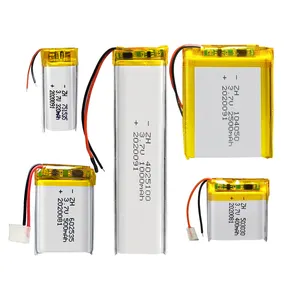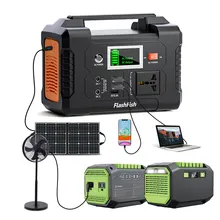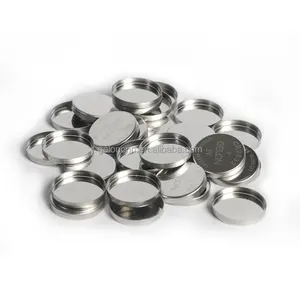What is Polymer Lithium Battery
Polymer lithium batteries, often abbreviated as Li-Po or Li-ion polymer batteries, are a type of rechargeable battery that is made of lithium and uses a polymer electrolyte. These batteries are known for their high energy density, which means they can store a large amount of energy in a relatively small and lightweight package. This makes them an ideal choice for a wide range of applications, from portable electronics to electric vehicles.
The construction of a polymer lithium battery involves a thin pouch or cell made of a flexible material such as aluminum or a polymer, which serves as the battery's casing. The electrolyte, usually a lithium salt, is contained within this pouch along with the anode and cathode layers. When the battery is being charged or discharged, lithium ions flow between the anode and cathode through the electrolyte, creating an electrical current. This process is reversible, allowing the battery to be recharged hundreds or thousands of times.
These batteries are designed for manufacturers who need a reliable power source for their products and for businesses that require energy solutions for various applications. Due to their high discharge rates and low internal resistance, polymer lithium batteries are particularly suited for high-performance electronics and electric vehicles, where they can deliver a sustained current without significant voltage drop.
Types of Polymer Lithium Batteries
The market offers a variety of polymer lithium batteries to cater to different needs and applications. Here are some common types:
-
Lithium Cobalt Oxide (LCO): This type is known for its high energy density and is typically used in mobile phones, laptops, and other consumer electronics where compact size and weight are crucial.
-
Lithium Iron Phosphate (LiFePO4): LiFePO4 batteries have a longer lifespan and improved safety compared to other types, making them suitable for electric vehicles, solar energy storage systems, and medical devices.
-
Lithium Nickel Manganese Cobalt Oxide (NMC): NMC batteries offer a balance between energy density, power density, and safety. They are often used in power tools, e-bikes, and automotive applications.
-
Lithium Manganese Oxide (LMO): With excellent thermal stability and a flat discharge curve, LMO batteries are ideal for applications such as electric vehicles and grid storage solutions.
How to choose Polymer Lithium Battery
Selecting the right polymer lithium battery for your business involves considering several factors that align with your product’s requirements. Here’s what businesses should keep in mind:
-
Capacity and Size: Evaluate the energy needs of your product and choose a battery with sufficient capacity without being overly bulky. The physical size of the battery will also impact the overall design of your product.
-
Voltage and Compatibility: Ensure that the battery voltage matches the required voltage for your device. Also, consider compatibility with existing charging infrastructure or whether the battery requires any special charging conditions.
-
Temperature Performance: Some polymer lithium batteries offer better performance at different temperatures which can be crucial if your product will be used in extreme environments.
-
Life Cycle: The number of charge cycles a battery can undergo before its capacity starts significantly degrading is an important consideration. Look for batteries that can sustain a higher number of cycles if your product requires frequent charging.
-
Safety Features: Depending on your application, you may need a battery with built-in safety features such as over-charging or over-discharging protection to ensure reliability and longevity.
About Polymer Lithium Battery on Alibaba.com
For businesses seeking reliable sources of polymer lithium batteries, Alibaba.com stands out as an exceptional marketplace that connects buyers with a global network of suppliers. The platform's extensive range caters to various applications – from small-scale consumer electronics to large industrial systems – ensuring that every business finds the right battery solution tailored to its specific needs.
Alibaba.com's interface is designed with features that simplify the purchasing process. Businesses can easily communicate with suppliers in their local language, manage orders through efficient handling and delivery services, and utilize Trade Assurance for secure transactions – all within one comprehensive platform. This streamlines international trade operations and empowers businesses to source high-quality polymer lithium batteries confidently.
Moreover, Alibaba.com's commitment to facilitating trade across borders aligns with the needs of small and medium-sized enterprises aiming to scale up their operations globally. With its focus on connecting businesses with trusted suppliers and providing a user-friendly trading experience, Alibaba.com is an invaluable resource for companies looking to source polymer lithium batteries efficiently and competitively.
Common FAQs for Polymer Lithium Battery
What are the primary benefits of using polymer lithium batteries in consumer electronics?
Polymer lithium batteries offer a higher energy density compared to traditional lithium-ion batteries, allowing for slimmer devices with longer battery life. They also have a stable discharge rate and can be shaped to fit various form factors, which is crucial for the design of portable electronics.
How do the different anode materials in polymer lithium batteries affect performance?
The choice of anode material, whether LCO, LNO, or Li-Polymer, impacts the battery's capacity, energy density, and thermal stability. Each material has its own set of characteristics that determine the battery's performance in terms of energy density, cycle life, and safety.
What protection features should be considered when selecting a polymer lithium battery for energy storage systems?
For energy storage systems, it is essential to consider batteries with protection features such as over-charging protection, short-circuit protection, over-discharging protection, low tension protection, and high-temperature protection. These features help ensure the safety and longevity of the battery under different operating conditions.
How does the choice of cathode material affect the performance of polymer lithium batteries?
The cathode material affects the battery's capacity, energy density, and cost. Cathode materials like LiCo, LiFePO4, and NMC offer different benefits in terms of energy density, cycle life, and cost. The material choice should be based on the specific performance requirements of the application.
Can polymer lithium batteries be customized in terms of size and shape?
Yes, many suppliers on Alibaba.com can provide customized polymer lithium batteries in terms of size and shape to fit specific device requirements and design constraints. Customizations may include adjustments to the physical dimensions or the overall form factor of the battery.
What is Trade Assurance on Alibaba.com and how does it relate to purchasing polymer lithium batteries?
Trade Assurance is a service provided by Alibaba.com that protects buyers' payments until their order is delivered satisfactorily. This service ensures that transactions for purchasing polymer lithium batteries are secure and that buyers receive their products as agreed upon.
Are there any industry standards for quality that buyers should be aware of when purchasing polymer lithium batteries?
While there are no universal industry standards specifically for polymer lithium batteries, it is important to ensure that products meet the quality requirements for your application. This can include certifications like UL, CE, or RoHS that might be relevant to your industry.
How does cycle life impact the selection of polymer lithium batteries for business use?
Selecting a battery with a long cycle life is crucial for business use as it impacts maintenance frequency and operational costs. A longer cycle life means more reliability and cost savings over time compared to a shorter one.
What considerations are important for businesses regarding the storage and handling of polymer lithium batteries?
Businesses should consider appropriate storage and handling solutions to protect these batteries from physical damage, environmental factors such as temperature and humidity, and to comply with regulatory standards to ensure safety.
Can polymer lithium batteries be integrated into existing device designs or systems?
Yes, polymer lithium batteries can often be integrated into existing device designs or systems as long as the form factor and electrical specifications match the requirements of the application.
What are some common applications for polymer lithium batteries that businesses should be aware of?
Polymer lithium batteries are commonly used in consumer electronics, medical devices, energy storage systems, electric vehicles, and various industrial applications where lightweight and high-energy density are important factors.
How does thermal management influence the performance of polymer lithium batteries?
Thermal management is critical for maintaining optimal battery operation within safe temperature ranges. It is particularly important for high-power applications where heat dissipation is essential to prevent thermal runaway or performance degradation.


































 浙公网安备 33010002000092号
浙公网安备 33010002000092号 浙B2-20120091-4
浙B2-20120091-4